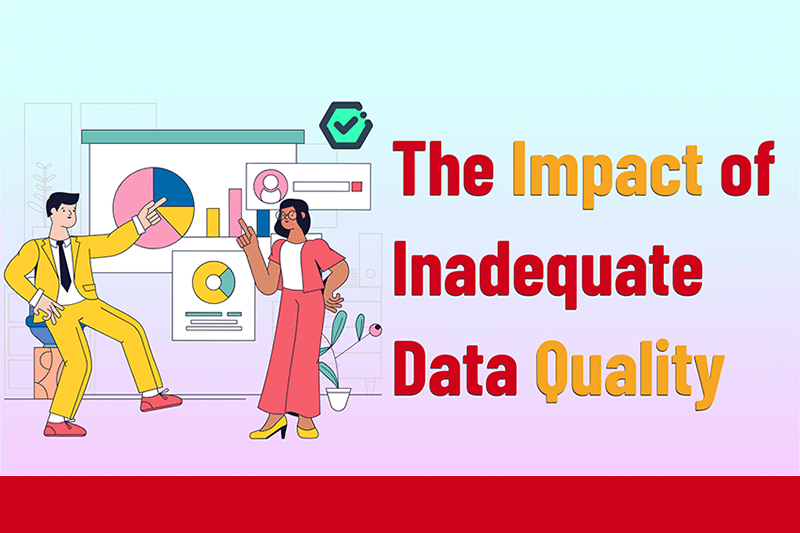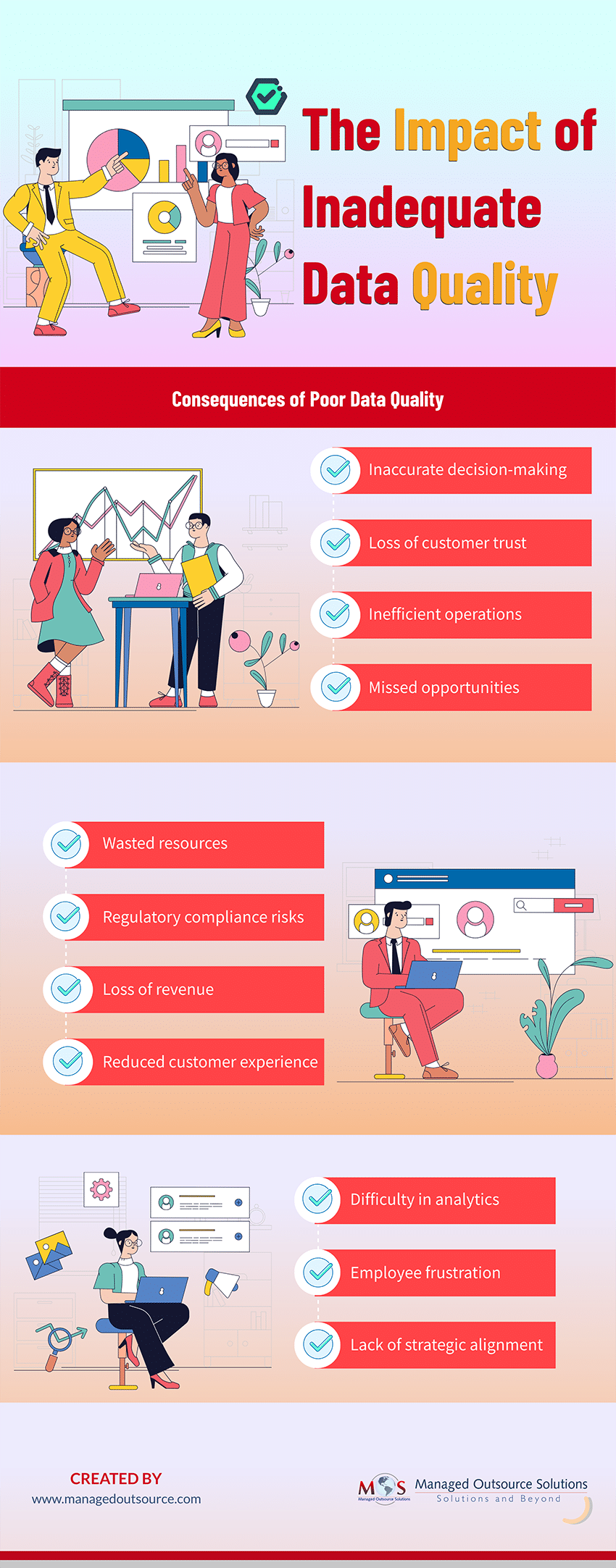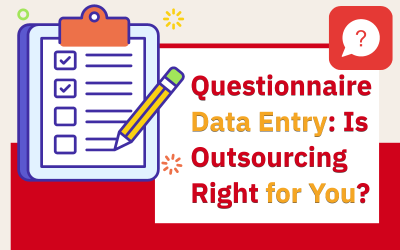Businesses rely on data to make informed choices, and when the data is unreliable or incorrect, it can lead to misguided strategies and actions. Poor data quality can have significant negative impacts on businesses across various aspects of operations and decision-making. Poor data can lead to inaccurate insights and decisions. Major causes of low quality data are – data entry errors, lack of proper data entry standards, incomplete information, data decay, data silos, failed data migration, poor data governance, and process inefficiencies.
To mitigate the impacts of incorrect data, businesses should prioritize data quality management. This involves establishing data quality standards, implementing validation processes, investing in data cleansing and enrichment tools, and fostering a culture of data accuracy across the organization.
Data entry outsourcing offers a range of benefits that can significantly enhance operational efficiency and overall business performance. It enables companies to focus their internal resources and expertise on core activities, such as strategic planning, innovation, and customer engagement, rather than diverting valuable time and energy towards routine data input tasks. Moreover, outsourcing provides access to skilled professionals who specialize in data entry, ensuring accuracy, consistency, and adherence to best practices. It also offers scalability and flexibility, allowing companies to easily manage fluctuating workloads without the need to hire and train new employees. Outsourcing empowers businesses to streamline operations, allocate resources effectively, and maintain a competitive edge in today’s dynamic business landscape.
Check out the infographic below





